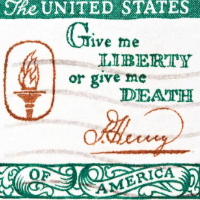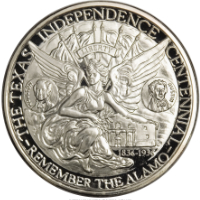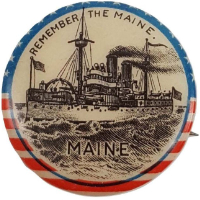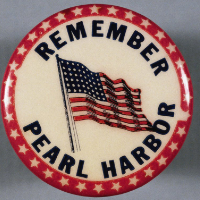

As most readers will know, the World Cup has kicked off in Qatar. For example, yesterday's results included this: Japan 2, Germany 1. The staff historian could have sworn it was U.S. 1, Germany and Japan 0, but maybe there's been some historical revisionism going on.
In any event, there is little question that this year's World Cup has some significant political undertones. The Qatari approach to gay rights and women's rights in particular, and to human rights in general, is well out of step with the values of much of the rest of the world. In view of this, many of the athletes involved expressed an intent to wear "One Love" armbands while playing. Fédération Internationale de Football Association (FIFA), which organizes and sanctions the World Cup, is quite clear on which side its bread is buttered. And so, it put the kibosh on the armband plan, warning that any player who defies that ruling risks receiving a yellow card (in other words, a penalty).
And speaking of FIFA, it is questionable—at best—that the World Cup was awarded to Qatar. First of all the climate in that nation is so inappropriate for association football that the tournament had to be moved by roughly 6 months, from its usual June-July schedule to a November-December schedule. Why would FIFA agree to upend tradition like that, and for the benefit of a nation with a dismal human rights record? Ha! Money, of course. FIFA has a long and well-deserved reputation for corrupt and unethical behavior, and this year's World Cup isn't going to do anything to help improve upon that.
And note that Qatar has not exactly wrapped themselves in glory as they have prepared to take center stage for a month. They've dropped something in the realm of $200 billion (yes, with a "B") to bring the event to the Middle East and to prepare for it in terms of infrastructure and other needs. And one way the Qatari government has balanced the books is to exploit migrant laborers to the hilt. That they are underpaid and overworked is a given. Further, a general lack of safety standards means that many workers have died to make this World Cup happen. How many? Well, the Qatari government isn't exactly eager to share that information, but numerous outside observers have pegged the total at somewhere between 2,500 and 5,000 people. The purpose of spending all those billions was to "sportswash" Qatar and to improve the nation's public image. Given the vast amount of negative coverage, this plan does not seem to be working out. Clearly, what the Qataris should have done is bought Twitter. Then they would only have wasted $44 billion.
So there's the political angle to this year's event. There isn't much more to be said, certainly not on an ongoing basis. That means we will now pivot to borrowing the World Cup structure in order to stage a little competition. We did this with the NCAA basketball tournament back in March, and we'll do it again next March. However, the World Cup operates a little differently, which means it's better suited to certain types of data sets. Most obviously, there are some categories with hundreds of possible contenders (thus suited for the 68-entry NCAA format) and there are some categories with considerably fewer (thus more suited for the 32-entry World Cup format).
So, what will be put to the test here? Well... drumroll... how about the most significant political slogans in American history? Hence the title "The Word Cup" (bet you didn't even notice the apparent misspelling in the headline). (V) and (Z), aided by a few outside consultants (human ones, not dachshund ones), have put together a field of 32 very impactful political slogans from across U.S. history. And while the World Cup draw is essentially random, we've organized the Word Cup by theme. In a further bit of structure that also is not really paralleled in the World Cup setup, half of our field is presidential candidates' slogans and the other half is not. So, whatever the final matchup is, it will be between the most significant presidential slogan and the most significant non-presidential slogan.
Note that in the first round of voting, each slogan in each group will pair off against every other slogan in the group. So, each first round grouping will have six matchups to vote on. This is how the World Cup itself works. Once the first round is over, then it will be head-to-head matchups only.
We have chosen "most significant" to describe the basis for this competition because if we say "greatest," that implies a certain judgment about likability. But the fact is that a slogan can express a reprehensible idea, or operate in service of a reprehensible person or group of people, and still be impactful. We would generally suggest that, as readers evaluate slogans, they consider factors like how memorable the slogan is, how effectively the slogan captures the idea/sentiment it was supposed to capture, and the extent to which the slogan influenced people.
And with all of that out of the way, here is the first group of slogans, all of which served to rally Americans behind a war:
 |
Give Me Liberty or Give Me Death! (1775): With many slogans, the author is unknown. Not so
here; even schoolchildren know that it was Patrick Henry who first wrote and uttered this as he worked to persuade the
legislature of Virginia to rebel against England. Apparently it worked since, as you may have heard, the legislature did so about a
year later. It's also worth noting that both George Washington and Thomas Jefferson were in the room to hear the speech.
In the interest of completeness, we should note that since there was no recording of the address (after all, that technology was more than 100 years in the future) and no contemporaneous transcription, there has been some post hoc suggestion that maybe Henry never actually said these words. However, the weight of the evidence suggests he did, and it is definitely the case that the phrase became a popular rallying cry for supporters of the Revolution. In other words, someone had to have written it or said it in 1775 or 1776, and Henry is far and away the most likely candidate. |
 |
Remember the Alamo! (1836): This one comes, of course, from the most famous engagement of the Texas Revolution. Some have attributed it to Sam Houston, but it appears that he was just repeating a phrase that many Texas soldiers shouted before being massacred by the Mexican Army. The slogan probably didn't have much impact on the Revolution itself, since the end of that conflict came just a few weeks after, but since 1836 it's become a core part of Texas identity. There's at least a little irony in that, inasmuch as the Mexicans proved at the Alamo that you can, in fact, mess with Texas. |
 |
Remember the Maine! (1898): The three other slogans listed here may have helped
harness the martial spirit, but they did not create a war all by themselves. "Remember the Maine!" on the other
hand? Maybe. In the 1890s, as the once-mighty Spanish empire was on the decline, and the soon-to-be-mighty American
empire was on the rise, relations between the two powers grew tense. In particular, there was much concern about Spain's
oppressive governance of Cuba and the Philippines.
Meanwhile, at that same time, a group of ultra-patriotic Americans, with Theodore Roosevelt being most prominent among them, decided it would be swell if the United States acquired a few colonial possessions of its own. The general notion these folks had was that taking colonies would prove that the U.S. had arrived on the world stage, while at the same time demonstrating that Americans were generous and considerate. After all, they would be bringing "civilization" to some of the "savage" peoples of the world. TR and the imperialists knew this would be a tough job, but that's life when you're the superior race. Taking their cue from the poet Rudyard Kipling, they called it "The White Man's Burden." These two trends came together in early 1898. President William McKinley, who had seen the horrors of the Civil War as a rank-and-file soldier, was no war hawk. So, he wanted to use diplomacy to calm tensions with Spain. And to that end, he sent some American ambassadors, aboard the U.S.S. Maine, to Havana to negotiate with Spanish authorities there. On February 15, 1898, while those negotiations were underway, the Maine exploded. What happened? Even today, we don't know for sure. It was probably an accident due to loading too much coal into the ship's boilers. In 1898, newspapers turned to the government officials responsible for overseeing the Navy, in hopes of getting some answers. And the Assistant Secretary of the Navy shared his view that the destruction of the Maine was no accident, and was a work of sabotage by an enemy. Since there was only one plausible enemy, suspicion fell on the Spanish. Despite their (probably truthful) denials, "Remember the Maine!" was quickly on the lips of the majority of Americans, substantially aided by a William Randolph Hearst-managed propaganda campaign. After all, wars sell newspapers. Oh, and did we mention that the Assistant Secretary of the Navy who got the ball rolling on all of this with his conspiratorial thinking was... Theodore Roosevelt? Just a couple of months after the ship sank, TR had the "splendid little war" he'd been longing for. |
 |
Remember Pearl Harbor! (1941): Unlike "Remember the Maine," this one most certainly did not lead to a declaration of war. Pearl Harbor was attacked on December 7, 1941, and the declaration of war against Japan came the next day. Hardly time there for a slogan to play any meaningful role. However, "Remember Pearl Harbor" did rouse Americans to action throughout World War II. On the plus side, that means that the slogan played some role in the Allied victory over the Axis. On the minus side, there was a significant racist undertone to the slogan, as it played into a stereotype that Japanese people/Asian people were sneaky and duplicitous, and it also reminded Americans of the anger and fear they felt at being attacked on December 7 (and by members of a race deemed to be inferior to white people, no less). So, while the sentiments encouraged by "Remember Pearl Harbor" may have helped win the war, they also helped lay the groundwork for Japanese internment and for atrocities committed against Japanese soldiers. |
If you want to vote, the ballot is here. As always, we welcome comments as to why you did, or did not, vote for a particular slogan. Up tomorrow is the first round of presidential slogans, covering the years before the Civil War. (Z)